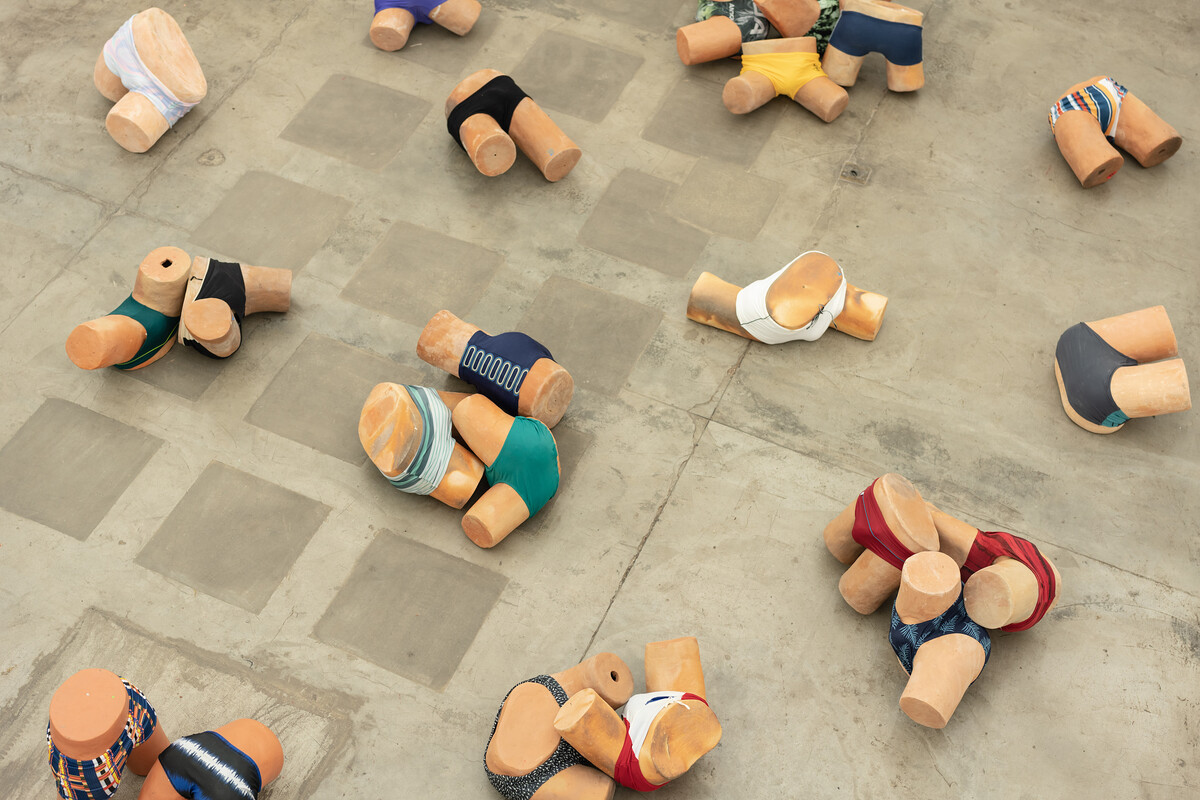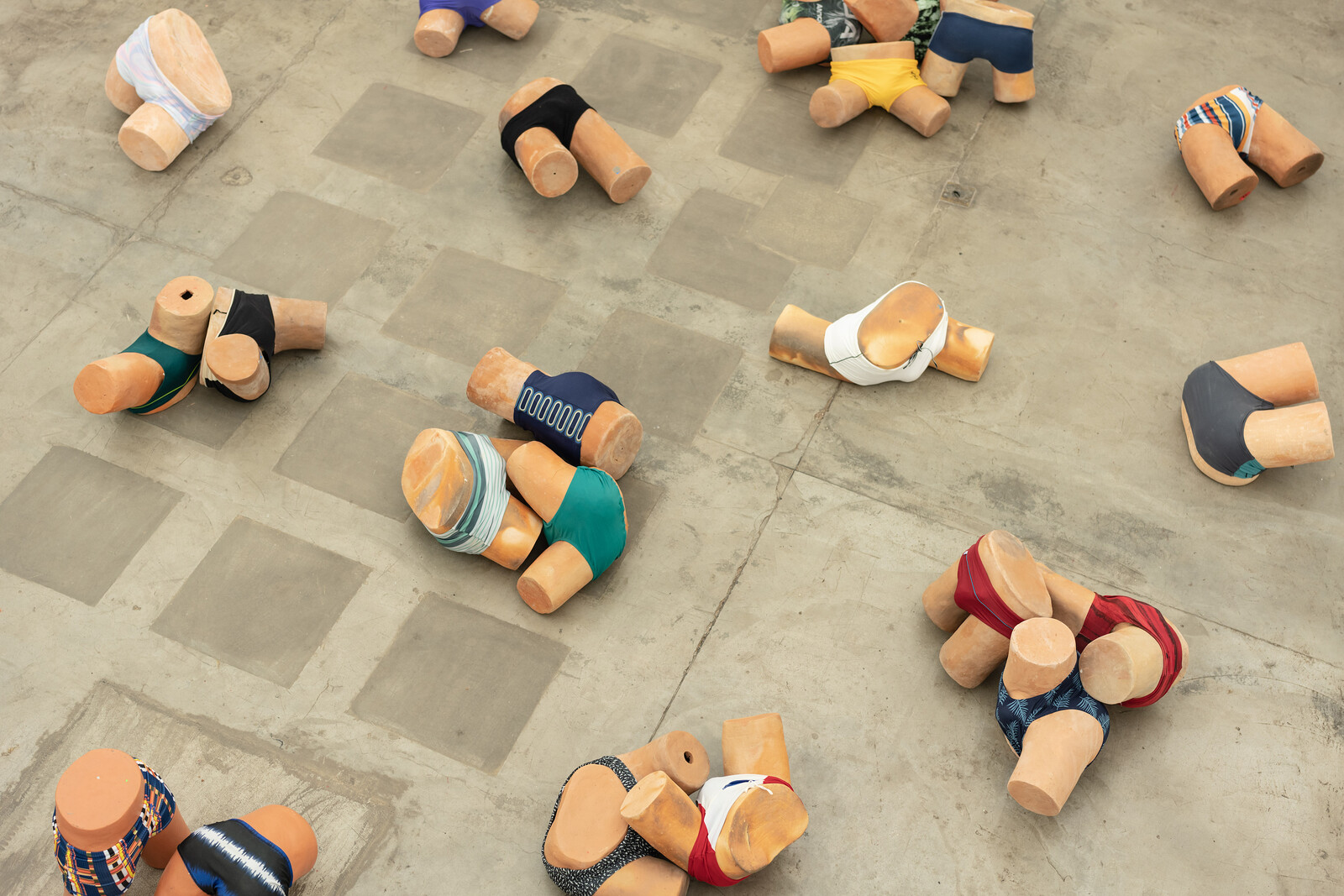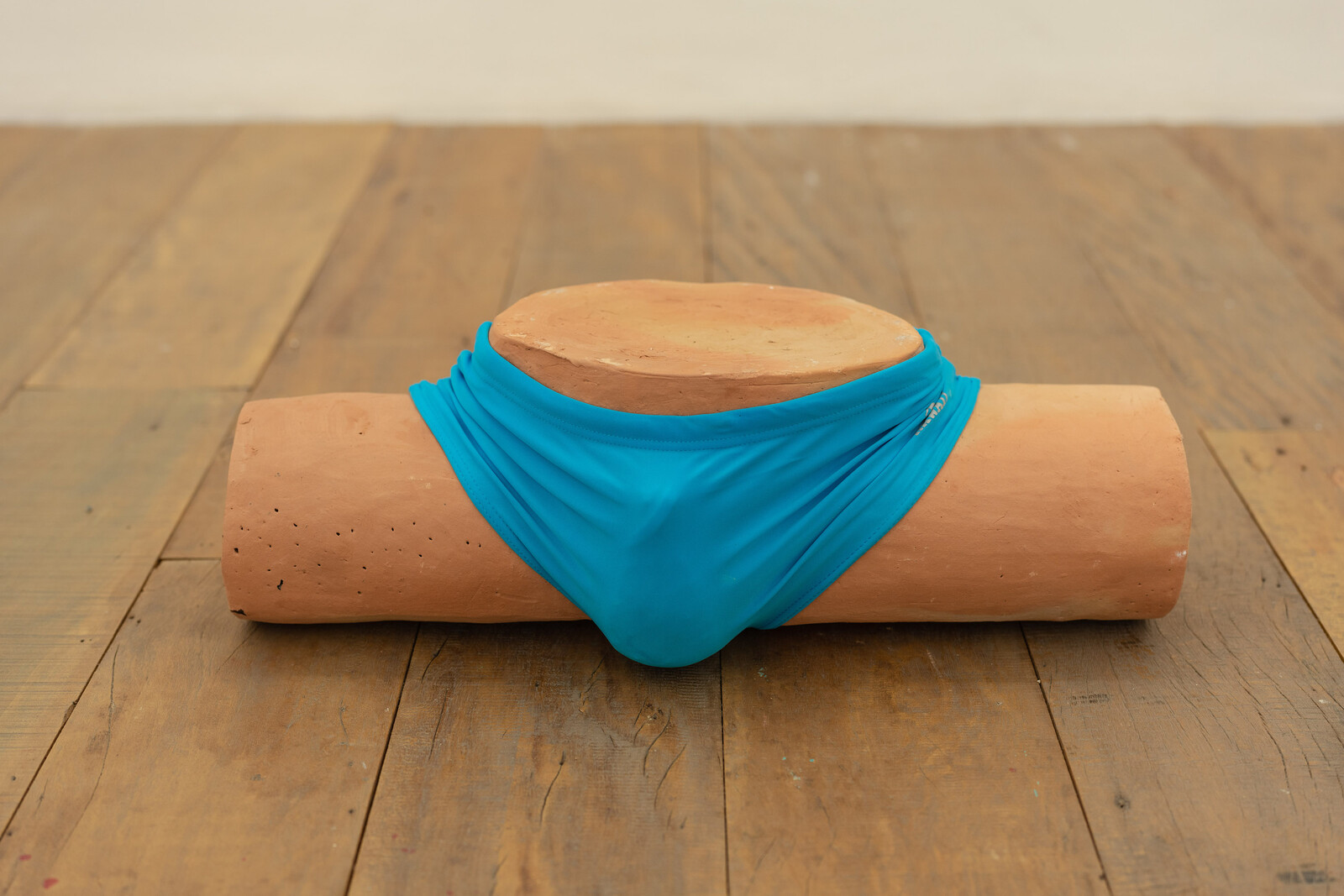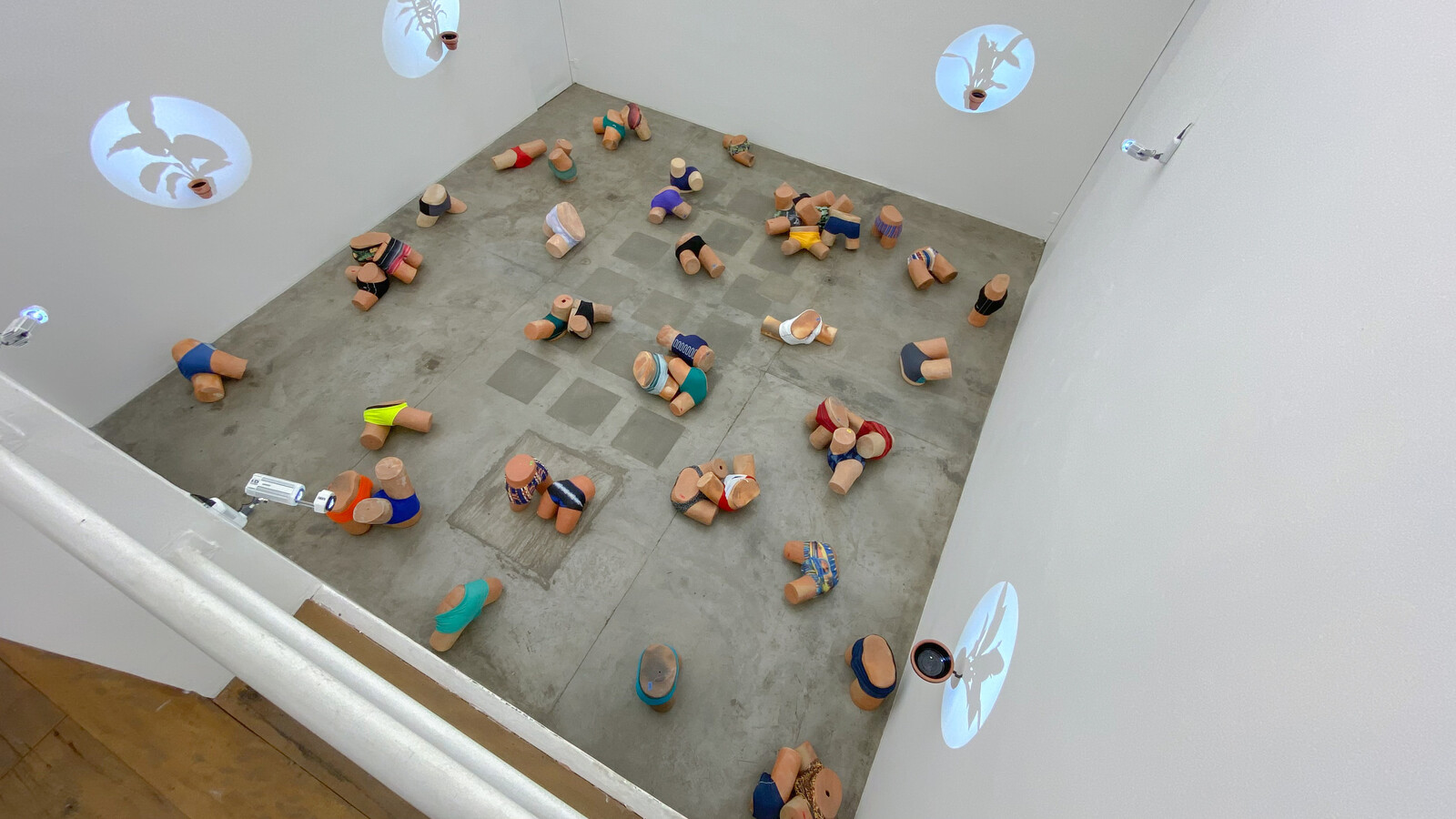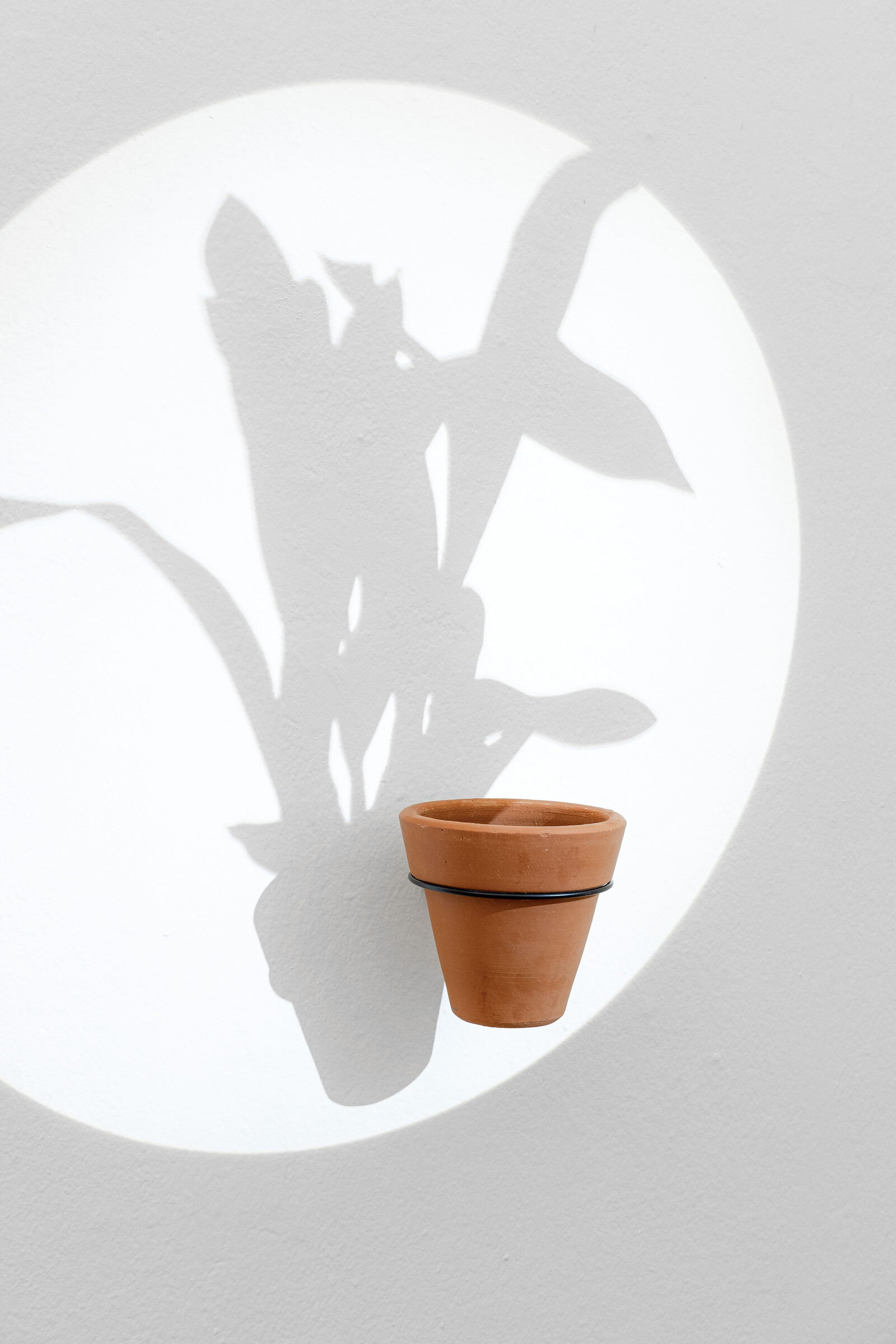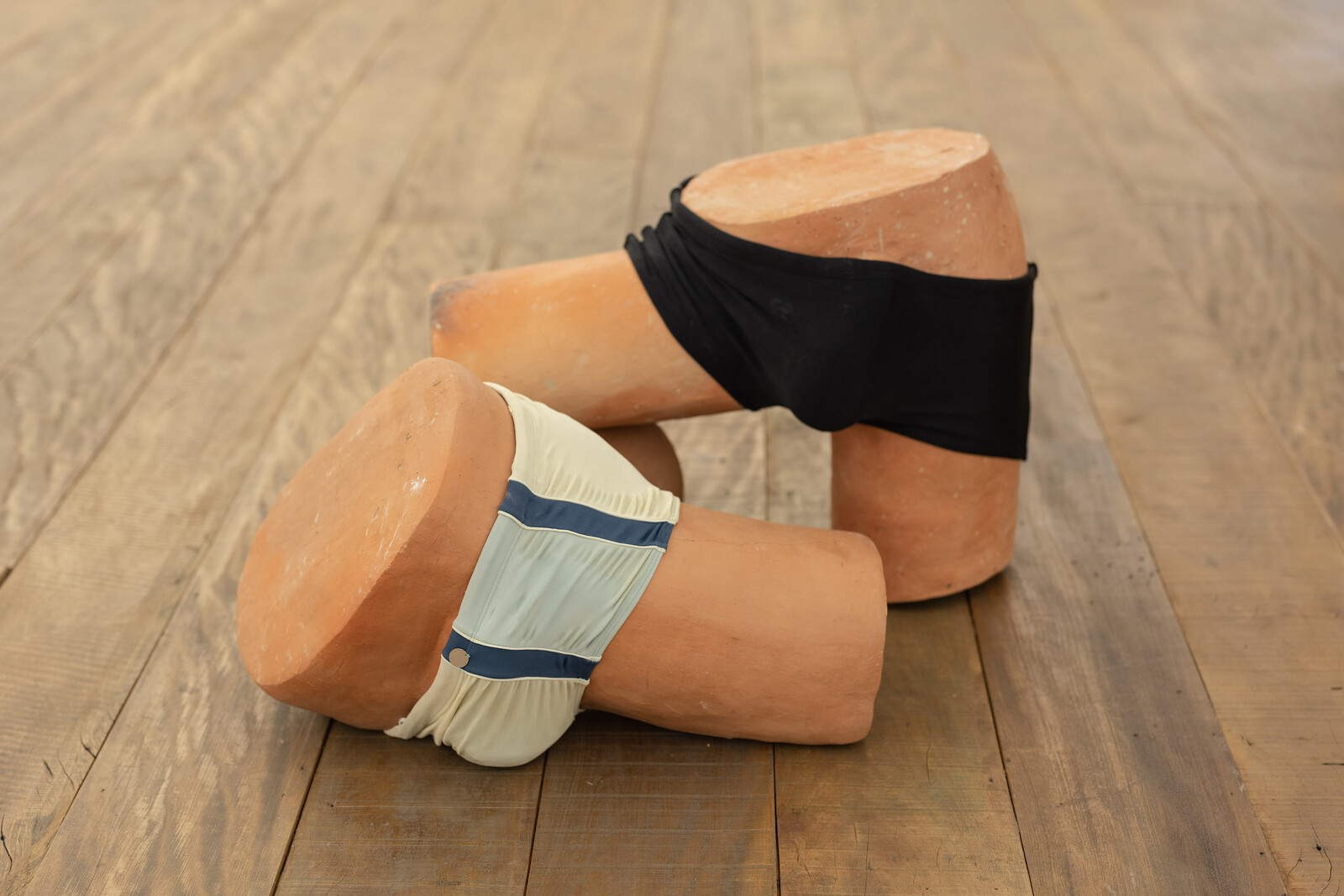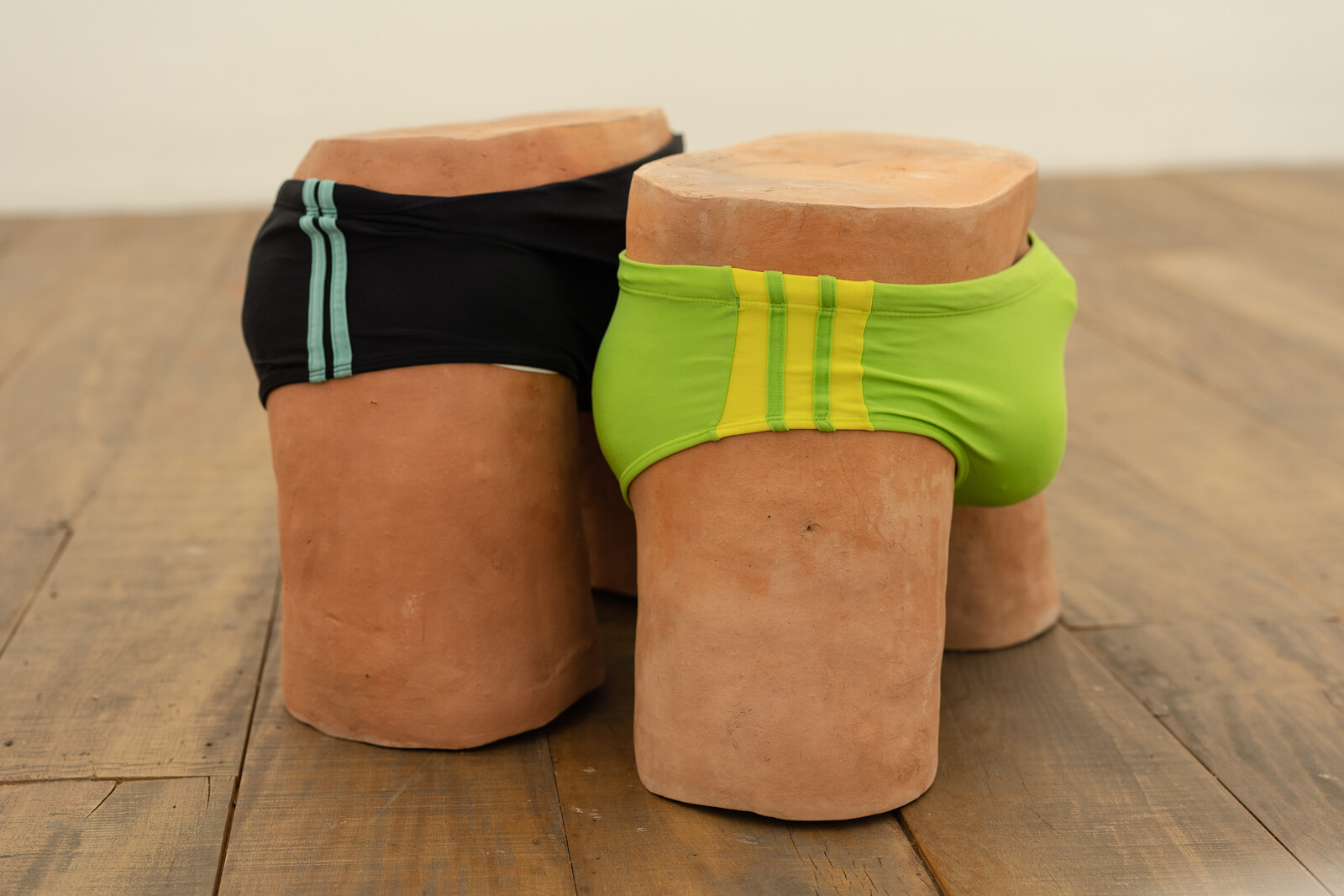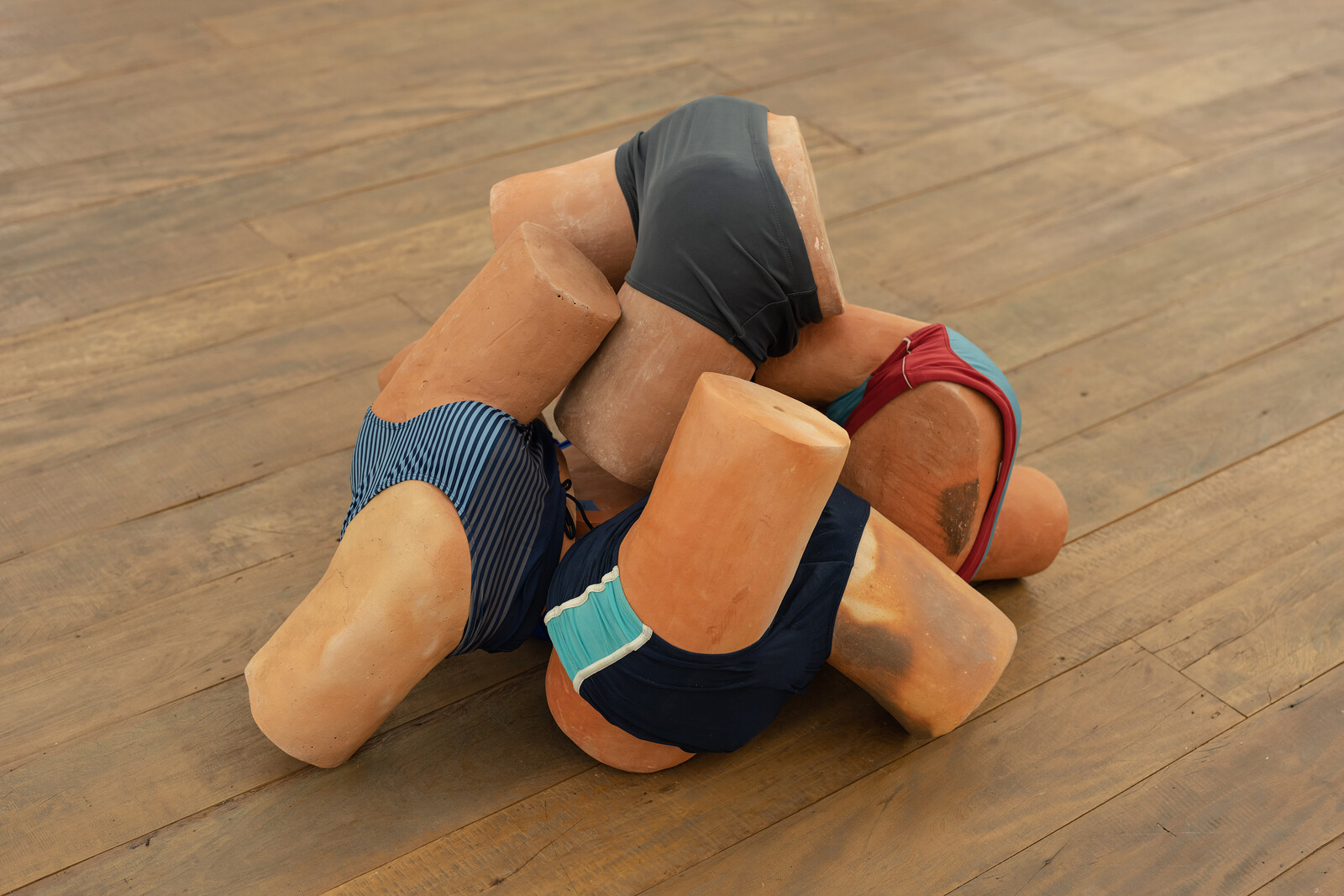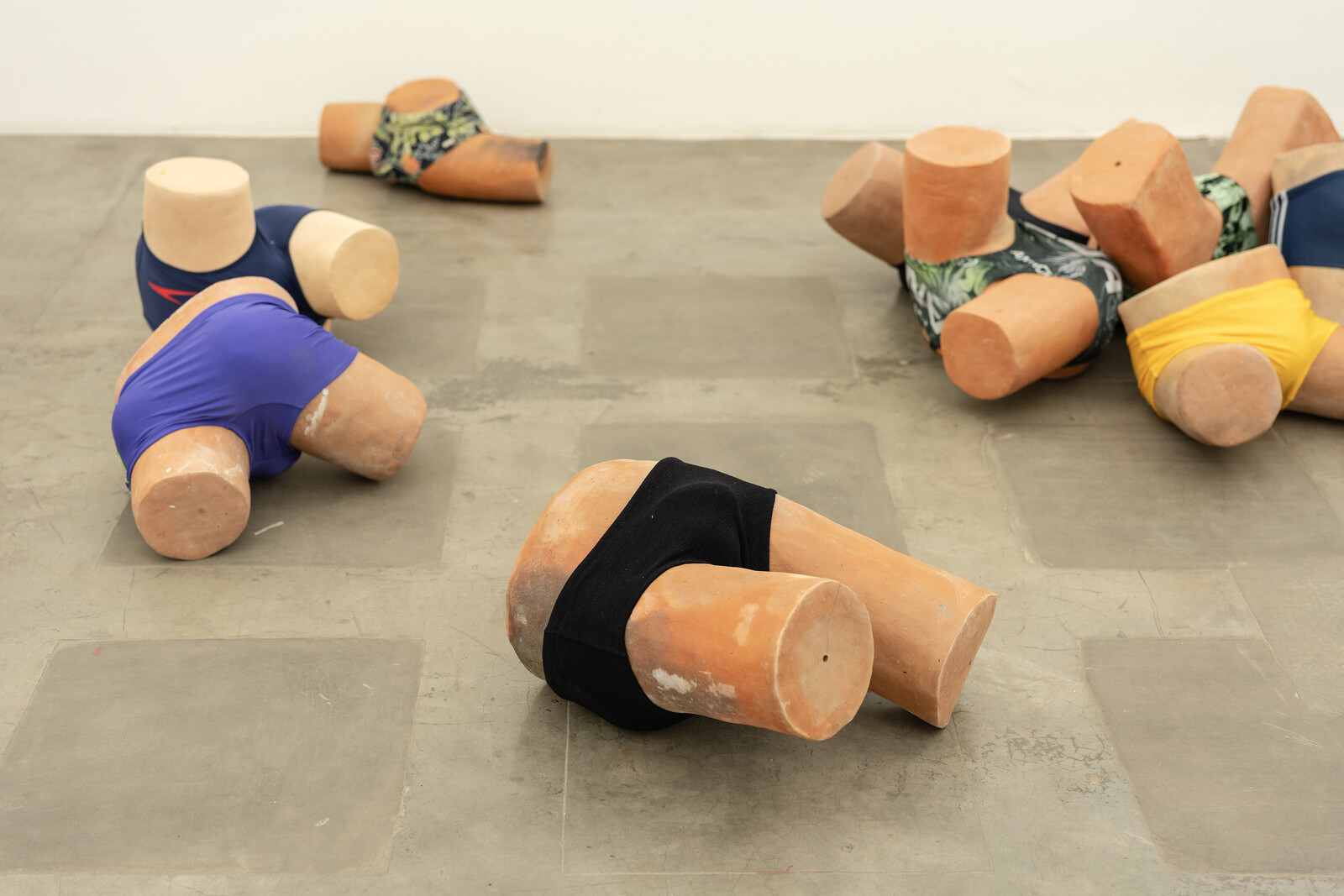I’ve been on the search for a new swimming pool in São Paulo since my regular haunt, Estádio do Pacaembu, was first closed to house a Covid-19 field hospital on the adjoining football pitch. And while cases have eased, the pool remains drained and shuttered as it undergoes refurbishment. The plans for Pacaembu, which includes an E-Sports center, hospitality areas, and the new Brazilian outpost for the Italian gallery Continua, are a far cry from the musty changing rooms and faded concrete terraces of its previous incarnation. But the old Pacaembu was free and attracted a wide range of Paulistanos, an oasis in a city of concrete, traffic, and noise. The alternative public pools I searched out are in near-dereliction or closed; the private club a well-meaning friend (clearly unfamiliar with the economics of art writing) recommended was off-putting not just in price but in its website’s reminder that members’ nannies were not eligible to swim. The swimming pool is a microcosm for Brazilian society, its class and racial fractures reflected in the chlorinated water.
For the past ten years the Brazilian artist Jonathas de Andrade has been collecting swimming trunks he finds discarded or forgotten in the changing rooms of his adopted city of Recife. In his current solo exhibition at São Paulo’s Galeria Vermelho, a short walk from Pacaembu, he stretched these trunks over specially commissioned earthenware representations of the male groin, each bulky but differing in exact size according to the particular swimwear they model, and arranged on the floor of the gallery. The artist commissioned over fifty of these ceramics from artisans in Tracunhaém, a city near Recife that is known as a centre of Arte Popular, the folk art tradition in Brazil. Collectively titled “Achados e perdidos” [Lost and Found], these works fill two rooms at Galeria Vermelho (de Andrade is, coincidentally, also represented by Continua).
Completing this scene is a series of four sculptures by Leandro Lima: wall-hung earthenware flower pots above which the silhouette of a leafy plant is projected, conjuring the romantic idea of balmy sun-dappled days by the pool. There is also a formal, painterly quality to de Andrade’s installation as the different patterns and palettes of the trunks intermingle. A cluster of sculptures, balanced on their behinds or truncated legs, variously sport designs of green khaki, monochrome yellow, or blue-and-red stripes. A few meters away another sculpture does the splits in fluorescent yellow speedos. Others seem to mount or fall over each other, introducing the element of homoeroticism that has been present in previous works by de Andrade, not least the 2016 video O Peixe [The Fish], in which topless fishermen from north-eastern Brazil caress their catches, or the installation Procurando Jesus [Looking for Jesus] (2013), for which the artist photographed men on the streets of Amman, and invited viewers to vote on which most resembled the son of God.
The new work at Vermelho, which asks what bodies are welcome and where, is a challenge to Brazil’s myth of racial democracy. (In November, Vice President Hamilton Mourão said racism “doesn’t exist” in Brazil, the day after footage spread of a Black man, João Alberto Silveira Freitas, being killed by two white supermarket security guards.) Lima’s contribution is noted, and the seven artisans that de Andade employed are credited alongside himself in the accompanying press release. Arte Popular has its roots in poorer communities and holds an important place in African-Brazilian culture, but it is only beginning to be appreciated within the rarefied environs of São Paulo’s contemporary art galleries, and the artisans’ works here enter a gallery such as Vermelho only by the grace of an artist such as de Andrade. The material of the sculptures differs from most earthenware (paler than the pots in Lima’s works, for example) which gives the effect of the tanned, and white, skin that has been the sort traditionally made to feel at home within arts institutions and private sports clubs internationally as much as in Brazil.
While it is closed, Pacaembu is being “activated” by a series of art commissions with work by the likes of Ernesto Neto, Jimmie Durham, and JR, as well as de Andrade himself. The project has good objectives and is free, but the fear is that it will contribute to gentrification that risks excluding the marginalized who might need an accessible space for leisure most. At Vermelho, de Andrade has produced a work that, for all its initial cheeky humour, tackles these knotty problems. With the pale-skinned, carefree frolics of “Achados e perdidos,” he acknowledges and plays with his (and this viewer’s) complicity in a system that carves out spaces of apartheid, whether intentional or not.
